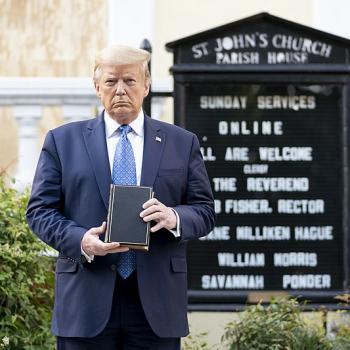Persecution is an ugly word. According to my online dictionary, it means “hostility or maltreatment, esp because of race or political or religious beliefs.”
That sounds simple enough. But, as usual, when you add politics and questions of power to the discussion, simplicity flies away. Political definitions, especially when they are trying to obscure reality, quickly become something too complicated for ordinary mortals to either understand or take action against.
Persecution, in the hands of politicians, becomes a tiny target that almost no one except the few that the politicians have decided (usually for reasons other than the persecution itself) they want to help. The reason for this is that slippery words like persecution are problems for politicians who hold the responsibility for nations and organizations in their hands.
If the definition of persecution is too easy, then they will find themselves faced with a moral responsibility to act, and actions from political units always mean committing the resources, and sometimes the lives, of their citizenry. Any good government takes care of its own people first. No head of state, either secular or religious, wants his or her options for governance directed by open-ended definitions of words like “persecution.”
This isn’t hubris. It’s necessity. Heads of state have been entrusted with the lives and well-being of their citizens. They cannot commit them wily-nily to the righting of every wrong there is. In the first place, righting every wrong is a practical impossibility. There too many wrongs for any one entity to right, even if that entity is a government. Also, evil and cruelty are hydra-headed. Chop off one evil and two more grow in its place.
Governments are very careful about what they chose to call persecution because persecution is a loaded word that demands a morale response and moral responses lead to demands for action. Actions by government, any government, are big moves that result in endless ripples of effect that can not be either controlled or predicted.
Governments shy away from easy access to their power through words like “persecution.” They create nuances and artificial qualifications in their definitions of the word that force almost all the people who suffer real-life persecution, sometimes even to the death, outside of its meaning.
In this way, they can excuse themselves from becoming ensnared in demands for action against the hydra-headed monster of persecution of innocent people that flares continuously around the globe.
What becomes problematic in this is that they also can try to stop the rest of us from acknowledging the truth of what’s happening, as well. A lot of governments are more afraid of their own people than anything else. The more oppressive a government is, the more this is true.
They do not want their citizens going off and naming persecution as what it is because they fear what might happen if this catches on in the popular imagination. They are afraid of having to act and they fear that people who call things for what they are might involve enough other citizens in their concerns that the demands for action will get out of hand.
This critical balance between necessary government conservatism about committing itself and its citizens to causes, fights, wars and troubles that are not its own, and the clear-cut facts of merciless situations leads to almost laughable twisting and turning of language. People use the tools at their disposal, and government has legal definitions of things at its disposal.
Government can create any definition of any thing that it wants. It can call the mass murder of millions a “final solution.” It can define medical murder as “death with dignity.” It can write definitions with such pinpoint specificity that no one except those it wants to let in will fall under those definitions.
I believe that is what has happened to the word “persecution.” So many people are suffering and dying all around the globe that no government, no entity, can hope to respond to it. If any one government tries, it will end up exhausting its resources and accomplishing nothing.
This is not evil. It is necessity. It is responsible care-taking of the people whose lives are in a specific government’s hands.
However, that does not oblige you and me to go along with these pin-point definitions of persecution which defy common sense and rational thought. We are free to look at reality as it is, without the varnish of legalese. We do not have to accede our personal vision to the blinders that government wears. We can look at things as they are.
Is there Christian persecution in India? Unless a lot of sources from a lot of places are all colluding in a massive confabulation, the answer is yes.
Here are two videos I found on YouTube. The second one is an actual video of an attack on Christians which resulted in their deaths. So be warned, it’s hard to watch and not for everyone, especially children.
http://youtu.be/8UGTgAFqYpU http://youtu.be/SDdtAMa7L-Q










